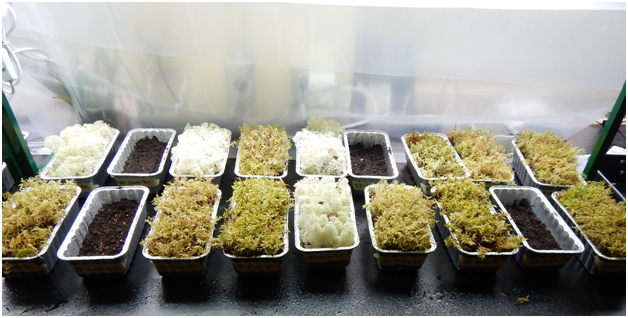After taking full advantage of winter break, spending a few weeks where my sole focus was to spend as much time on the mountain, it’s taken me quite some time to get settled back into graduate student life… a.k.a. sitting at a desk reading (take a look at Quinn Webber’s post “What’s in an idea?” for some great insight on the role literature plays in formalizing research frameworks). I focused my last post on decisions that led me to graduate studies and what it was like starting in May, a somewhat uncommon start date. So, what knowledge have I gained about being a Memorial graduate student since then?… *stares at the screen blankly*. Well, since my last blog I have successfully completed half of my required courses and held a Teaching Assistantship (TA).
This past summer I was chatting to a gentleman whose son was starting his undergraduate degree at Memorial in September and I mentioned that there was a small chance I could end up being his TA, to which he replied “You could? Are you qualified for that?” A question to which I had no better answer than “I guess so? I have my undergraduate degree,” a response that unfortunately greatly undervalues my previous accomplishments. With this conversation in the back of my mind, I had a knot in the pit of my stomach when waiting for the students to arrive for our first lab session. While looking out over the group of students I was responsible for, the skepticism that gentleman had, crept into my thoughts: “they look like my peers, am I qualified to for this position? Am I confident enough in my knowledge to lead the labs effectively?” I had a serious case of ‘Imposter Syndrome’, the feeling that regardless of your accomplishments, you’ll be unmasked as a fraud. Despite the feelings of uncertainty and self-doubt, the first lab session came and went without incident. As the semester went on, I heard stories from an associate and even a tenured professor recounting similar feelings they had experienced throughout their careers, and I realized that maybe ‘Imposter Syndrome’ is just a right a passage on your way into the elitist sphere that is academia (check out Kate Bahn’s blog post “Faking It: Women, Academia, and Imposter Syndrome”). The lack of confidence subsided but never fully went away, but I showed up prepared every Tuesday and made myself accessible over email for students struggling with assignments. Before I knew it the semester was done and I thanked the students for being respectful as I went through the process of learning what strategies for being an effective TA worked and what didn’t work for me. The most eye-opening thing for me was, that despite the internal struggle with self-doubt, a few students approached me at the end of the semester and gave me positive feedback on my role as a teaching assistant. So for anyone else out there feeling the same way, those internal thoughts don’t necessarily translate to how others perceive your work, keep on doing you, I’m sure you are doing an excellent job.
Okay enough of that, I am going to draw a line in the sand and do a direct transition into reflections on graduate course work.
So, you enrol in graduate school after completing your undergrad and think to yourself, “sweet I am only required to complete 4 courses! That’s gonna be a breeze, I just finished taking 4 to 5 courses a semester for 4 (…or in my case 5) years.” For my first semester in grad school I completed two courses; a statistics course and a conceptual geography one. While I found myself with a smaller work load than an undergraduate semester, I felt higher stress levels and as a result, I often left finishing course assignments right to the last minute. So, what is the difference between my BSc and my MSc that is leading to this? After some reflection, I believe it’s because I no longer have the anonymity I had during my undergrad. I was now participating in discussions with my peers, who know me personally and academically, and I didn’t want to be the one who was inadequately prepared. And more importantly, I was submitting assignments to professors in my department who know who I am and know my supervisor; people whose impressions on my work quality matter to me. I am not saying I didn’t care about my work quality during my undergrad, that would be a lie, but I think the difference is I care more now. Because of this, my internal self was a harsher critic than it used to be, and this made it difficult to get through assignments efficiently. While I often turned in assignments with the feeling of “sometimes okay is good enough”, feedback on my assignments were always more positive than I expected and I finished the semester very satisfied with my course results. I guess, just as in the case with my TA-ship, we are our own worst critics. I think the key is finding mechanisms where self-critique doesn’t become detrimental (check out Megan Stewart’s post “Taking care of yourself during grad school” for her insights on staying healthy).
Needless to say, my first semester was quite busy. On top of everything else, I also conducted a lab based experiment testing the effects of substrate (lichen, moss, and peat) on germination of black spruce and tamarack. While the experiment was still part of my program, it was a great opportunity and provided a break from my course work and teaching assistantship duties.
All in all, I had a relaxing winter break and was excited to return in January. We’re now one month into the semester and I’m still feeling the same. Thanks for sticking it out with me through this post! Hope you were able to take away something from my reflections. Until next time!
~Anna
